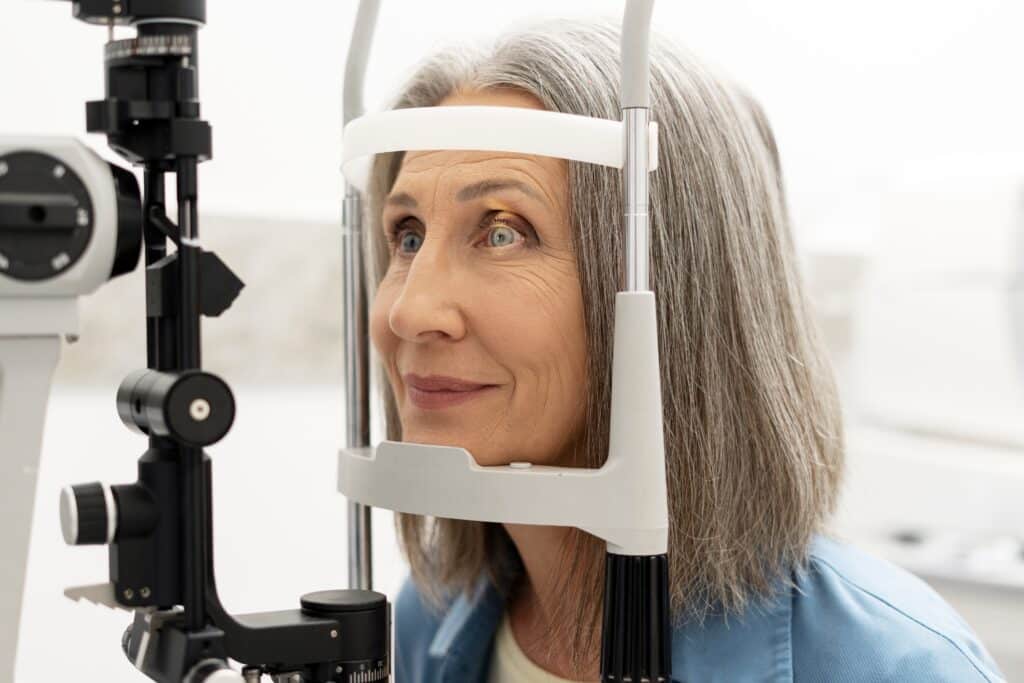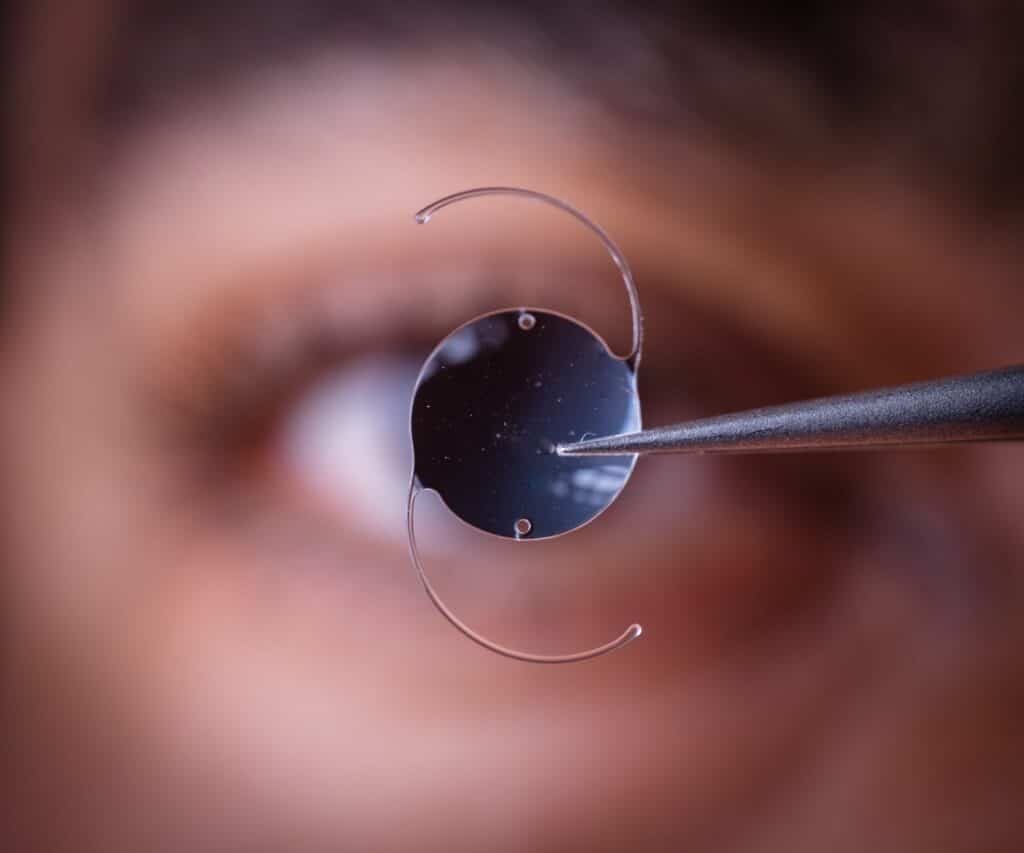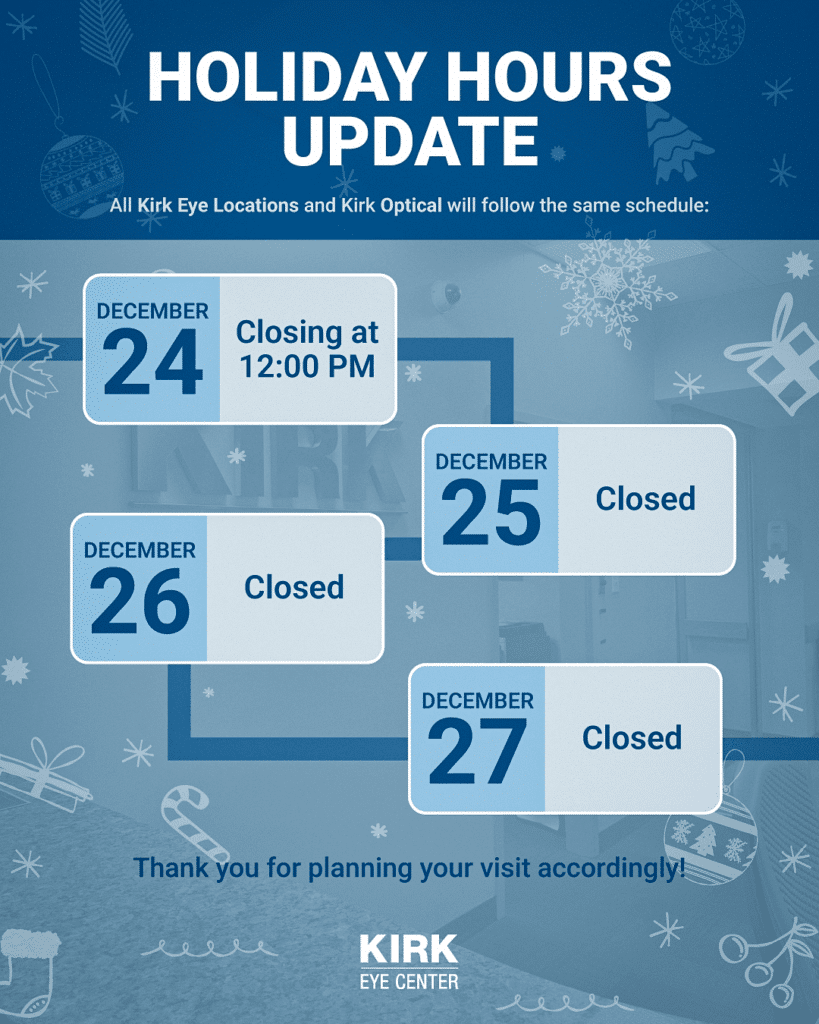
Laser Cataract Surgery
Laser cataract surgery utilizes cutting-edge technology that can chart out the eye’s surface to generate a more exact laser incision, significantly minimizing the chances of complications.
What Is Laser Cataract Surgery?
Many of the steps of traditional cataract surgery are performed with handheld instruments. With advanced laser cataract surgery, Dr. Kirk can use a femtosecond laser to create precise incisions, including the circular opening for accessing and removing the cataract.
The opening is exceptionally accurate, resulting in a near-perfect circle. Once the opening is created, the laser can break down and fragment the hardened cataract into tiny pieces, allowing for easier and gentler cataract removal than in traditional procedures. Following the removal of the natural lens where the cataract is, a new intraocular lens (IOL) is implanted, restoring your clear vision.

Laser Cataract Surgery Procedure
At Kirk Eye Center’s state-of-the-art on-site surgical facility, we use the Catalys Precision Laser System for our bladeless cataract procedures. Catalys is an incredibly precise instrument that can be customized to each patient.
Laser cataract surgery produces little to no discomfort during the procedure and offers a more rapid recovery than can be achieved through the traditional method. You will experience a gentle cataract removal, resulting in less inflammation, and may have a reduced need for glasses or contacts after surgery.
Typically, the process involves:

Before Laser Cataract Surgery
Prior to your surgery, you will undergo an eye exam to determine which IOL prescription will work best for your unique needs. Dr. Kirk will explain all of your lens options and help you determine which IOL best matches your needs and possibly eliminate the need for glasses after your procedure.
Once you have checked in on the day of your surgery, you will be taken to a room and given drops to prepare your eye for surgery. You will be given sedation to ensure you are relaxed during the procedure. Most patients feel sleepy and at ease during the surgery.
During Laser Cataract Surgery
Every eye is unique and varies in shape and size. To customize your treatment, we will build a 3D map of your eye using CATALYS’ advanced 3D imaging system. This will allow Dr. Kirk to tailor a treatment plan that matches the unique qualities of your eye.
No needles are used at all during your surgery. Eye drops are used to completely numb the eye, and sedation ensures you won’t be wide awake during the procedure.
Dr. Kirk will then use the CATALYS femtosecond laser to create a circular opening in the eye to access and remove the cataract. When performed with the CATALYS laser instead of a handheld instrument, this opening is approximately ten times more accurate.
The laser softens and breaks up the hard cataract. Once the deteriorated natural lens is removed, Dr. Kirk will implant your IOL, which will restore clear vision.

After Laser Cataract Surgery
Your laser cataract surgery is a quick procedure. You will spend a short time resting in our facility before you are ready to be driven home. You may experience some mild discomfort and blurry vision immediately after your surgery, but this will quickly subside. Most patients see improvement the day following their procedure. If you suffer from cataracts in both eyes, your second surgery will most likely take place in a week or two.
The Catalys Precision Laser System
Simply put, the Catalys Precision Laser System is among the best technologies available today for femtosecond laser cataract surgery. It can restore clarity and brightness to your vision with stunning precision, accuracy, and safety. In laser cataract surgery, it is used for:
How Much Does Laser Cataract Surgery Cost?
The cost of cataract surgery varies from patient to patient, based on a number of factors, such as:
During your consultation with Dr. Kirk, he will discuss all of your options and explain what costs you can expect to pay based on the type of procedure and IOL you choose.
Am I A Candidate for Laser Cataract Surgery?
For the most part, anyone with mid- to late-stage cataracts could be a candidate, assuming they are in generally good physical health. Nevertheless, while laser cataract surgery is definitely effective, the procedure does have some limitations. One is that patients with some types of astigmatism may not be eligible.
Benefits of Choosing Laser Cataract Surgery
Impaired and device-assisted vision has many limitations that can be frustrating for patients. Laser cataract surgery at Kirk Eye Center has a number of benefits, including:
One of the significant benefits of laser cataract surgery is that it can simultaneously correct astigmatism while treating cataracts. There are generally two ways to correct astigmatism, or an irregular elongated shape to the eye, during laser cataract surgery. If further vision correction is needed after your laser cataract surgery, we may recommend LASIK or PRK surgery.
Frequently Asked Questions
Schedule Today!
Are you interested in learning if laser cataract surgery might be right for you? Schedule an appointment at one of our four convenient locations in the Chicago area.


